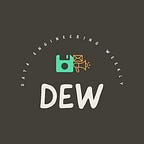What if your data lake could do more than just store information—what if it could think like a database? As data lakehouses evolve, they transform how enterprises manage, store, and analyze their data. To explore this future, I recently sat down with Vinoth Chandar, founder of Onehouse and creator of Apache Hudi, for a fireside chat about the trends shaping the data landscape. Together, we discussed how Hudi drives innovation, the state of open standards, and what lies ahead for data lakehouses in 2025 and beyond.
The Lakehouse Journey and Enterprise Impact
Drawing from his experience at industry giants like Uber and LinkedIn, Vinoth shared how Apache Hudi has redefined data management by introducing database-like capabilities into data lakes. This foundational concept addresses a key challenge for enterprises: building scalable, high-performing data platforms that can support the complexity of modern data ecosystems.
Hudi bridges the gap between traditional databases and data lakes by enabling transactional updates, data versioning, and time travel. This hybrid approach empowers enterprises to efficiently handle massive datasets while maintaining flexibility and reducing operational overhead.
Exploring Apache Hudi 1.0: Key Innovations
The release of Apache Hudi 1.0 represented a significant leap forward in data lakehouse technology. Vinoth walked us through some of the version's most impactful features, including:
• Partial Update Encoding: This innovation allows incremental updates to data without rewriting entire datasets, significantly boosting efficiency.
• Enhanced Indexing: Improved indexing mechanisms streamline query performance, making data retrieval faster and more cost-effective.
• Incremental Pipelines: Hudi's ability to process only new or updated data enables real-time analytics and reduces business processing overhead.
These advancements address enterprises' real-world challenges, such as maintaining fresh, up-to-date datasets and optimizing for high-throughput scenarios.
Evolving Data Ecosystems and the Role of Open Standards
The industry is abuzz with discussions about open table formats and the so-called "table format wars" involving Apache Iceberg, Delta Lake, and Apache Hudi. While some argue that specific formats have gained the upper hand, Vinoth emphasized the importance of evaluating technologies based on specific use cases rather than following trends.
Apache Hudi's unique differentiators, such as its ability to handle complex data operations asynchronously, set it apart. For example, Hudi excels in scenarios requiring large-scale data ingestion with transactional guarantees, a feature critical for the finance, healthcare, and retail industries.
Vinoth also stressed the need for solutions that ensure longevity and adaptability. "What works today may not solve tomorrow's challenges," he noted, underscoring the importance of flexibility in selecting tools.
Reflections on Open Standards and Vendor Lock-In
A recurring theme in our discussion was the significance of open standards in fostering innovation and avoiding vendor lock-in. While open table formats claim to provide flexibility, Vinoth encouraged a deeper examination of how "open" some implementations truly are.
Vinoth pointed out that balancing openness with proprietary advancements remains a complex challenge. Hudi's approach has prioritized community-driven development while staying nimble enough to address enterprise-specific needs. This balance ensures Hudi remains a trusted choice for businesses seeking innovation and stability in their data platforms.
Predictions for 2025 and Beyond
Looking ahead, Vinoth shared an optimistic vision for the future of data lakehouses. He foresees greater collaboration within the open-source community, leading to simpler, more user-friendly data lakehouse solutions.
Vinoth explained that one of today's biggest challenges is managing data across multiple engines while keeping operational overheads low. He expressed hope for advancements that abstract away these complexities, empowering organizations to focus on deriving insights rather than wrestling with infrastructure.
Hudi, with its robust community and technical innovation, is well-positioned to lead this charge. By continuing to refine its core capabilities and foster industry-wide collaboration, it aims to shape the future of data management.
Conclusion: Building the Future of Data Lakehouses Together
Our conversation with Vinoth Chandar offered valuable insights into the dynamic trajectory of data lakehouses and the technologies driving this evolution. Apache Hudi's innovations stand at the forefront of this movement, addressing real-world enterprise challenges and setting new standards for scalability, efficiency, and flexibility.
As we move into 2025, one thing is clear: the path forward will require collaboration, innovation, and a commitment to openness. We invite you to join the conversation—what challenges or opportunities do you see in the world of data lakehouses? Please share your thoughts in the comments or connect with us on social media.
All rights reserved ProtoGrowth Inc, India. I have provided links for informational purposes and do not suggest endorsement. All views expressed in this newsletter are my own and do not represent current, former, or future employer” opinions.











